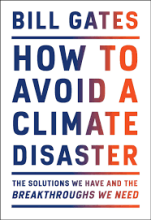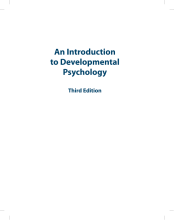Adapting to a warmer world
14 important questions on Adapting to a warmer world
Why, according to Bill Gates, must we fight climate change and poverty at the same time?
- This is because the low-income people will suffer the most from a climate disaster and deserve the most help on the field of climate change
- As an example = Gates met the Talam family in 2009; their farm covered two acres, but what was happening on this small plot of land was drawing hundreds of farmers from miles around to learn what the owners were doing and how they could do it themselves, but climate change could undo all the progress they've made.
Can you explain how the low-income farmers people in Africa and Asia suffer from climate change?
- As the climate gets warmer;
- Droughts and floods will become more frequent, wiping out harvests more often.. Livestock eat less and produce less meat and milk.
- The air and soil lose moisture, leving less water available for plants, so farmland will become substantially drier.
- If you don't have enough money saved up and your crops die off, you can't buy more seeds
- Food will be more expensive for those who can least afford it
As food becomes less available, a big consequence is that a child born in Chad is 50 times more likely to die than a child born in Finland, can you explain this?
- With growing food scarcity, more kids won't get all the nutrients they need, so their bodies will be weaker and they will be much more likely to die of diarrhea, malaria, or pneumonia.
- One study found that the number of additional heat-related deaths could approach 10 million a year by the end of the century
- Higher grades + faster learning
- Never study anything twice
- 100% sure, 100% understanding
The worst impact of climate change in poor countries will be to make health worse - to raise the rates of malnutrition and death. Bill Gates describes two ways to help the poorest improve their health, which two ways does he describe?
- 1) We need to raise the odds that malnourished children will survive, that means:
- Improving primary health-care systems
- Doubling down on malaria prevention
- Continuing to provide vaccines for conditions like diarrhea and pneumonia
- 2) We need to make sure that fewer children are malnourished in the first place, that means:
- We need to help poor farmers frow more food, even when roughts and floods strike
According to Bill Gates, CGIAR (Science for humanity's greatest challenges) is a organization that has done more than any other organization to ensure that the poorest families have nutritious food, what does this organization entail?
- It's the world's largest agricultural research group; it helps create better plants and better animal genetics. It will be indispensable in creating new climate-smart crops and livestocks for the world's poor farmers.
CGIAR (Science for humanity's greatest challenge), worked on drought-tolerant maize, can you explain this work?
- More than 200 million households in sub-Saharan Africa depend on this crop for their livelihoods. And as weather patterns have become more erratic, farmers are at greater risk of having smaller maize harvests, and ometimes no harvest at all.
- Experts as CGIAR (Sciende for humanity's greatest challenge) developed new maize varieties that could withstand drought conditions, each adapted to grow in specific regions of Africa.
- As a result, farmers in drought-stricken areas who used drought-tolerant maize were able to harvest up to 600 more kilograms of maize per hectare;
What does the former Un secretary-general ban Ki-moon and the former World bank CEO Kristalina Georgieva say about investing money in CGIAR (Science for humanity's greatest challenge)?
- They say that this money is well spent; every collar invested in CGIAR's (Science for humanity's greatest challenge) research generates about $6 in benefits.
Bill Gates describes four big headlines on adaption, the first headline is "cities need to change the way they grow", why is this said by Bill Gates?
- All cities will be affected by climate change, but coastal cities will have the worst problems: the cost of climate change to all coastal cities could exceed $1 trillion each year, so it is important that cities change the way the grow.
What, according to Bill Gates, does climate-proofing a city look like?
- City planners need the latest data on climate risks and projections from computer models that predict the impact of climate change;
- With the latest information, they can make decisions or expand deawalls, protect themselves from the storms, shore up storm-water drainage systems, and raise wharves so they stay above rising tides;
Bill Gates describes four big headlines on adaption, the second headline is "we should shore up our natural defenses", can you explain this?
- Restoring ecosystems has a huge payoff; water utilities in the world's largest cities could save $890 million a year by restoring forests and watersheds
- As an example = planting mangrove trees is a great investment; they help prevent some $80 billion a year in losses from floods
Bill Gates describes four big headlines on adaption, the third headline is ""we're going to need more drinking water than we can supply", can you explain this?
- If we don't do anything, by mid-century the number of people who can't get anough decent water at least once a month will rise by more than a third, to over 5 billion people.
- Technology can offer a solution; First, we know how to take the salt out of seawater to make it drinkable, but the process takes a lot of energy. Second, there is an available system to take water out of the air, but it costs thousands of dollars;
According to Bill Gates, we need to be preparing for a worst-case scenario, if we're headed toward a worst-casescenario, you're going to hear more about a set of bold ideas that fall under the umbrella term "geoengineering", what does this mean?
- These approaches are unproven; geoengineering is a cutting-edge "Break Glass if Case of Emergency" kind of tool.
- The idea is to make temprary changes in the earth's oceans or atmosphere that lower the planet's temperature; these changes wouldn't be intended to absolve us of the responsibility to reduce emissions; they'd just buy us time to get our act together
According to Bill Gates, we need to reduce the amount of sunlight hitting the earth by 1%, what are two ways to do this?
- 1) Distributing extremely fine particles; scientists know that htese particles would scatter sunlight and cause cooling, becuase they've watched it happen.
- 2) Brightening clouds; because sunlight is scattered by the tops of clouds, we could scatter more sunlight and cool the eath by making the clouds brighter, using a salt spray.
What have the approaches to geoengineering in common?
- 1) They're relatively cheap comparedwith the scale of the problem; capital costs of less than $10 billion and minimal operating expenses
- 2) The effect on clouds lasts for a week, so we could use them as long as we needed
- 3) Whatever technical problems these ideas mighjt fase are nothing compared with the political hurdles they'll definitely face
The question on the page originate from the summary of the following study material:
- A unique study and practice tool
- Never study anything twice again
- Get the grades you hope for
- 100% sure, 100% understanding
































